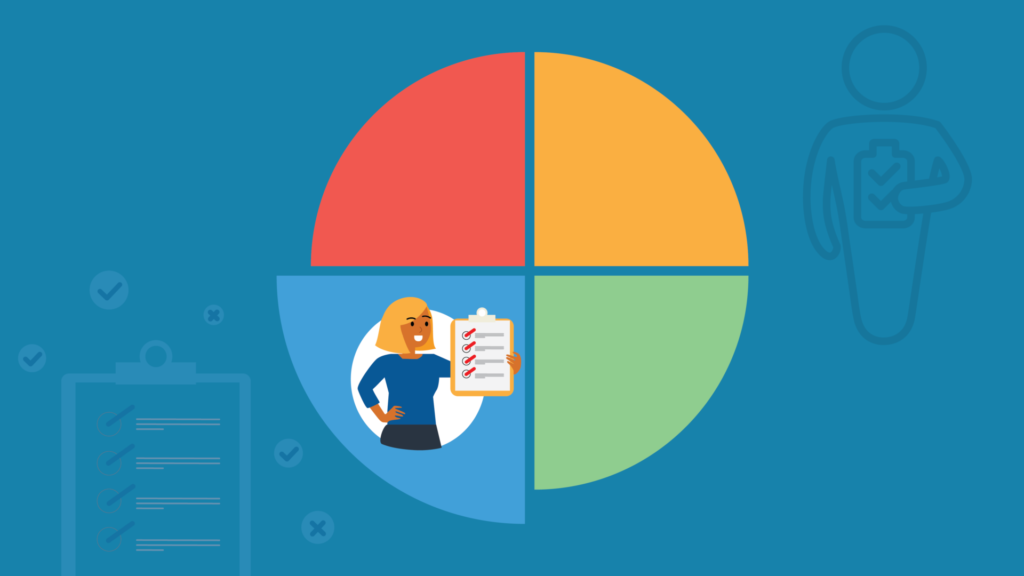HAVE YOU EVER WONDERED WHY SOME WORKPLACE CONVERSATIONS FLOW EFFORTLESSLY WHILE OTHERS HIT ROADBLOCKS? DISCOVER THE SECRET TO SEAMLESS COMMUNICATION THROUGH DISC PERSONALITY INSIGHTS.

Understanding DISC personalities can make a big difference at work. The DISC model, developed by psychologist William Marston, categorises individuals into four primary personality types: Dominance (D), Influence (I), Steadiness (S), and Conscientiousness (C). Each personality type brings its unique strengths and communication styles to the table.
D-types are assertive and results-driven, making them excellent leaders and decision-makers. I-types are social butterflies, charismatic and great at networking and influencing others. S-types are reliable and patient, ideal for teamwork and building strong relationships. C-types are analytical and detail-oriented, excelling in tasks that require precision and organisation.
Recognising and understanding these personality types within your team, you can tailor your communication and management strategies to enhance collaboration, improve productivity, and create a more harmonious work environment. This insight empowers individuals to work more effectively together and fosters a workplace culture of appreciation and adaptability.
Why DISC is the Key to Effective Workplace Communication
Effective communication is the cornerstone of any successful organisation. Without clear, efficient communication, misunderstandings can arise, leading to frustration and decreased productivity. In the fast-paced world of today’s workplaces, understanding and leveraging the DISC personality model can make a significant difference.
Here’s how DISC can be the key to unlocking effective workplace communication:
- Improved Understanding: The first step in effective communication is understanding. By understanding the different DISC types in your team enables tailored communication and reducing misunderstandings.
- Enhanced Collaboration: D-types are direct and goal-oriented, while S-types value stability and teamwork. I-types are sociable and thrive on interaction, while C-types prefer precision and accuracy. When you know your team members’ personality types, you can structure collaborative efforts to play to their strengths and create a more harmonious and productive work environment.
- Conflict Resolution: Understanding DISC personalities can help you navigate workplace conflicts. By recognising how different personalities react to conflict and stress, you can adapt your approach to address and resolve issues effectively.
- Effective Leadership: Effective leadership involves inspiring and guiding your team. When you know the personality types within your team, you can adapt your leadership style to match their preferences. D-types may respond well to direct, decisive leadership, while S-types may appreciate a more patient and empathetic approach. This tailored leadership style enhances your team’s motivation and productivity.
- Enhanced Productivity: By understanding how each personality type approaches tasks and projects, you can assign roles and responsibilities that align with individual strengths. This boosts productivity as team members work on tasks that naturally suit their personalities and skills.
Tips for Leveraging DISC Personality Insights
Now that you understand the value of the DISC personality model in workplace communication, here are some practical tips to get you started:
- Begin by assessing your own personality type. Understanding your strengths and communication style can help you relate better to others. You can find various online tools and assessments to determine your DISC personality type.
- Pay close attention to your colleagues and team members. Observe their communication styles and listen actively during interactions. Look for clues that indicate their personality types.
- Tailor your communication style to match the preferences of your audience. Use direct and concise language for D-types, engage in social chit-chat for I-types, be patient and empathetic with S-types, and provide clear and detailed information for C-types.
- When conflicts arise, adapt your approach based on the personalities involved. Provide constructive feedback for D-types, maintain open communication with I-types, show empathy and understanding with S-types, and offer well-structured solutions for C-types.
- If you’re in a leadership role, adapt your leadership style to meet the needs of your team members. Be flexible and responsive, recognising that different situations may require different approaches.
While understanding DISC personality types can significantly improve workplace communication, we understand that implementing these insights can be challenging. If you need further guidance and support in utilising the DISC model effectively within your organisation, contact us. Our team of experts can provide tailored training and consultation to help you and your team thrive through improved communication and collaboration.
DISC personality model offers a powerful framework for enhancing workplace communication. Start applying these insights today and watch your workplace communication transform for the better.
Written by Rebecca Deane – Clinical Psychologist – creatingchange.net.au

